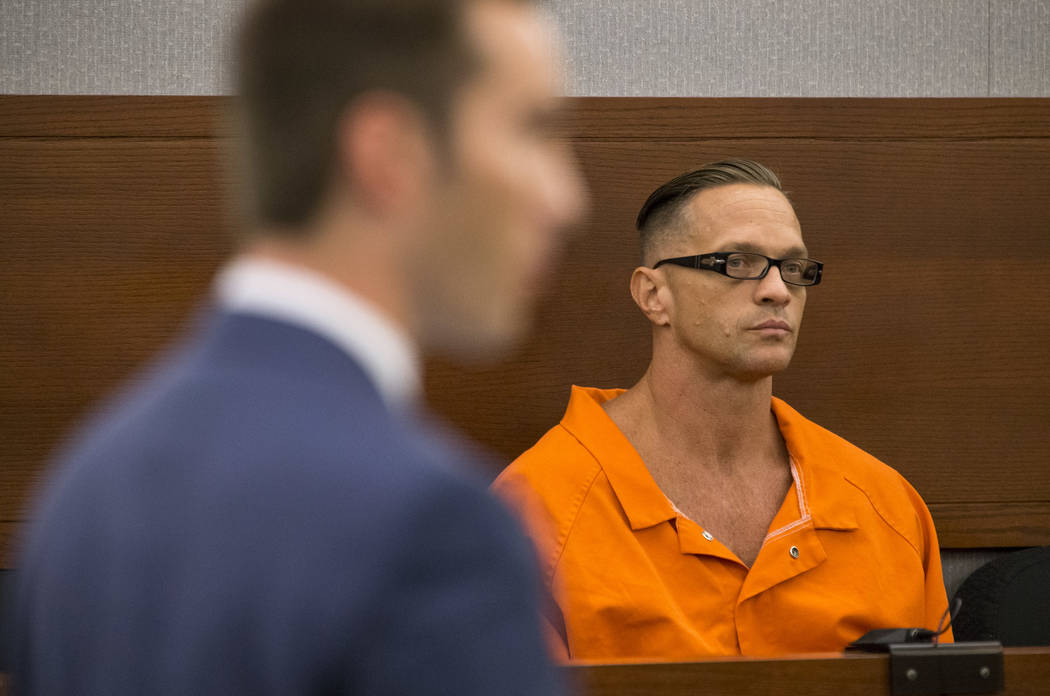Legal battle continues in Nevada over Dozier execution
While prison officials struggle to carry out an execution that a twice-convicted killer asked for nearly two years ago, the Nevada attorney general’s office this week renewed its push to have the state’s high court lift a ban on one of the drugs chosen for his lethal injection.
Should the Department of Corrections obtain another combination of drugs to execute 47-year-old Scott Dozier, or even seek another way to kill him, prison lawyers expect a spate of “cookie-cutter” lawsuits to stop capital punishment.
“Even if the state were to change its method of execution through legislation, the manufacturer of any product used in any method could intercede to stop an execution,” Deputy Solicitor General Jordan Smith wrote.
The Nevada Supreme Court is expected to decide whether drug companies can stop the prison system from using their medications in the now twice-postponed execution of the condemned killer. The prison system appealed a Clark County District Court judge’s decision to temporarily ban the use of a sedative.
The legal battle morphed into something of a public records debate, while other states continue to administer lethal injections.
Lawyers for Alvogen Inc., which makes the sedative midazolam, argued that prison officials tried to hide the process of how it obtained the drug for as long as possible. Hikma Pharmaceuticals USA Inc., which makes fentanyl, a second drug in the state’s three-drug cocktail, has joined the litigation and argued that the Department of Corrections wants to execute Dozier under a cloak of secrecy.
“The state’s argument against disclosure and transparency is ironic considering that the state is subject to the Nevada Public Records Act,” wrote Hikma attorney Josh Reid, the son of former U.S. Sen. Harry Reid. The drug makers “and the citizens of Nevada have a substantial interest in knowing how the state intends to carry out the process of killing a human being under a death warrant.”
Attorney Todd Bice, who represents Alvogen, agreed that the public should have full access to the state’s lethal injection protocol.
Evidence presented in the lower court would “foster the public’s overriding interest in transparency by establishing the record from which the truth can be determined,” Bice wrote.
Smith wrote that the state would “suffer prejudice if it is forced to engage in invasive and extensive” efforts to turn over evidence about how the drugs were obtained, arguing that the proceedings would amount to “a wasteful exercise in futility — at the expense of Mr. Dozier and his stated desire to be executed, the victims of his crimes, and the taxpayers.”
Nevada prison lawyers pointed to a failed federal lawsuit filed last week in the execution of Nebraska inmate Carey Dean Moore, which occurred Tuesday.
“So unlike the District Court in this case, the Nebraska federal court rightly realized that this is not simply a ‘business dispute,’” Smith wrote. “It has real-world consequences for Dozier as well as his victims’ families.”
Dozier, who waived his appeals in late 2016, was sentenced to die in 2007 after first-degree murder and robbery convictions in the slaying of Jeremiah Miller. The victim’s torso was found on April 25, 2002, in a suitcase that had been dumped in a trash bin at a Las Vegas apartment complex.
Dozier also had a murder conviction in the Arizona slaying of Jasen “Griffin” Greene before he was brought to Nevada to face charges in Miller’s death. Dozier would be the first prisoner executed in Nevada since 2006.
Contact David Ferrara at dferrara@reviewjournal.com or 702-380-1039. Follow @randompoker on Twitter.
Related
Nebraska uses opioid fentanyl in inmate's execution


















